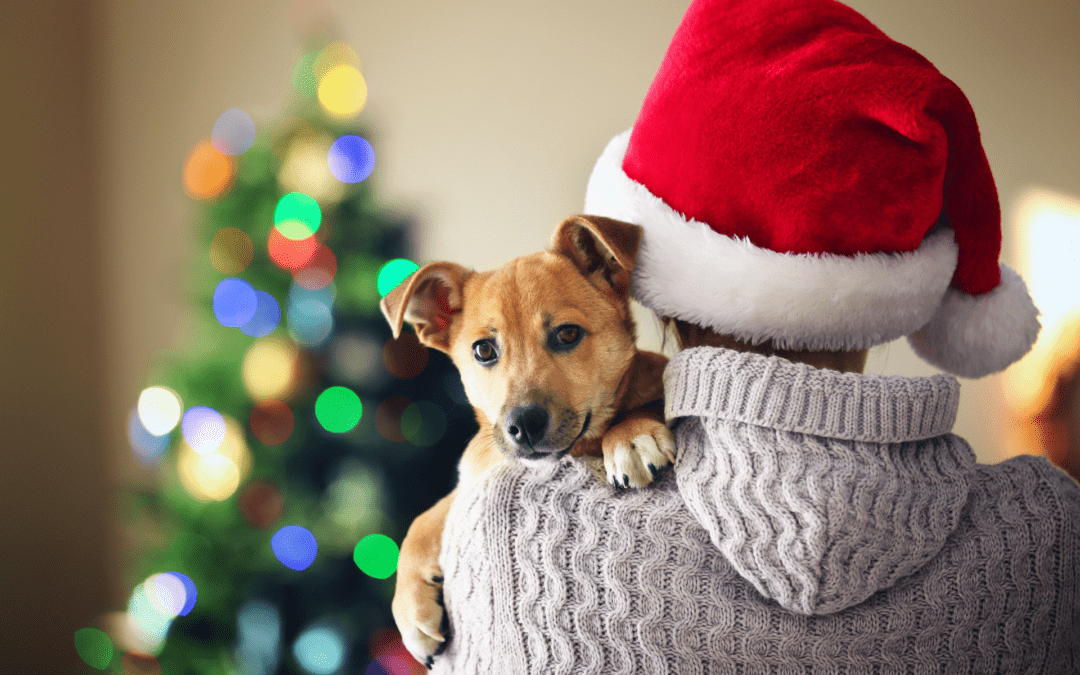The winter holiday season is upon us, a time of cozy décor, tasty treats, and joyous events with friends far and near. While we want to include our furry friends in the festivities, it is important to consider your pet’s well-being during this season. Use these tips to help your pet have the most wonderful time of the year.
Holiday Parties
Everyone gets caught up in the excitement of a holiday party, even our pets. Though your friendly dog or cat may enjoy meeting new people, remember that a full, noisy house may unsettle them and cause anxious behaviors. If they seem withdrawn, overly energetic, or more vocal than usual, these may be signs that they are uncomfortable with the environment. Having a quiet room or crate where they feel safe is a good thing to prepare ahead. Also, remember that visitors will be using the exterior doors frequently, so make sure your guests are aware that you have a pet and are extra mindful when entering and leaving the house. Make sure your pet is microchipped and wearing a collar with your correct information on the tag in the unfortunate event that they slip through the door and become lost.
Holiday Treats
One of the joys of the holiday season is the tasty foods ever available. However, many of these snacks are toxic to our pets. Make sure any food laid out is not accessible to free-roaming pets and ask guests to refrain from offering table scraps to your pet. Be mindful of these common holiday foods and drinks that can cause harm to your pet:
- Alcohol
- Bones
- Candy (especially chocolate)
- Chives
- Citrus & pits
- Coffee
- Eggs, meat, or fish that is raw or undercooked
- Garlic
- Grapes & raisins
- Nuts
- Onions
- Xylitol (an artificial sweetener found in many foods, drinks, and candies)
If you are concerned that your pet may have ingested one of these foods or drinks, contact your trusted veterinarian immediately.
Holiday Décor
Many holiday decorations can cause serious harm to our pets if ingested. Pine needles, garland, tinsel, and string lights can cause an intestinal obstruction and require life-saving surgery to remove. Candles should not be left unattended, as they may spill wax or start a fire if a pet knocks them over. Firestarter logs contain sawdust and paraffin, which can cause stomach irritation or intestinal blockage if chewed on and ingested. Many seasonal plants, including ivy, holly, mistletoe, and poinsettias, are poisonous to pets if eaten.
With safety in mind, the furry member of your family can have a joyous holiday season filled with fun, love, and lots of cozy cuddles to last through the new year. Happy Holidays!
Adapted from “Holiday Safety Tips for Pet” by the Humane Society of the United States

